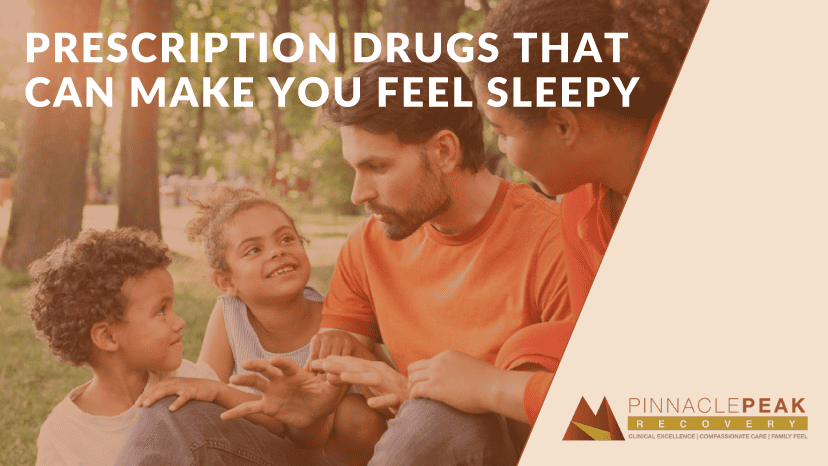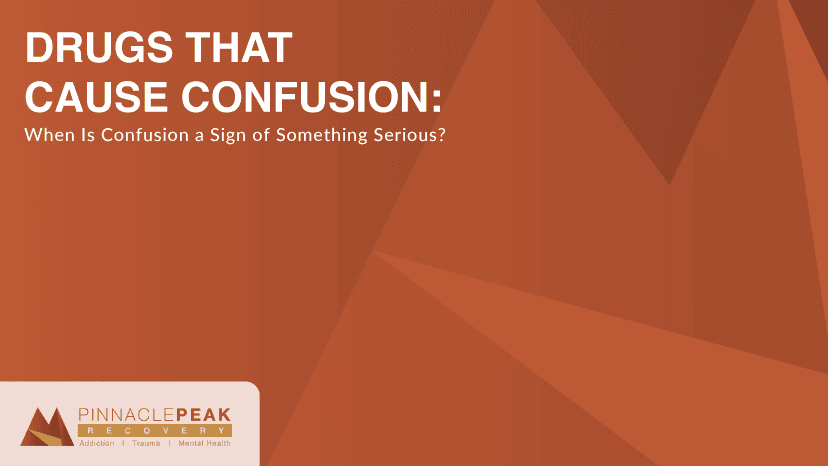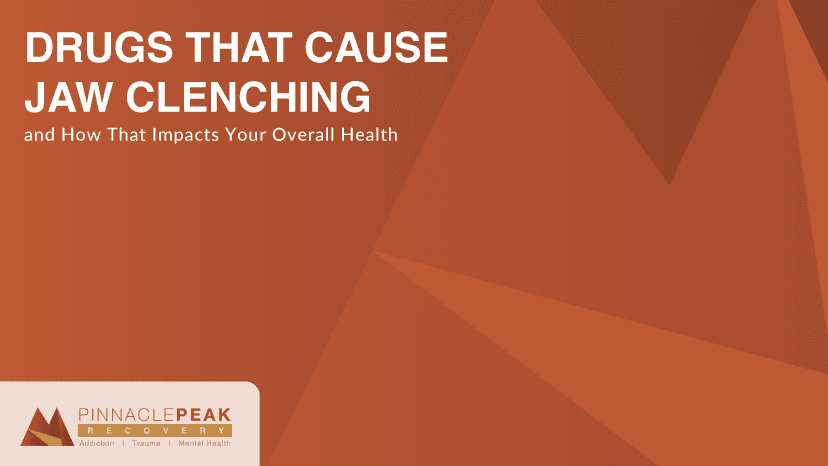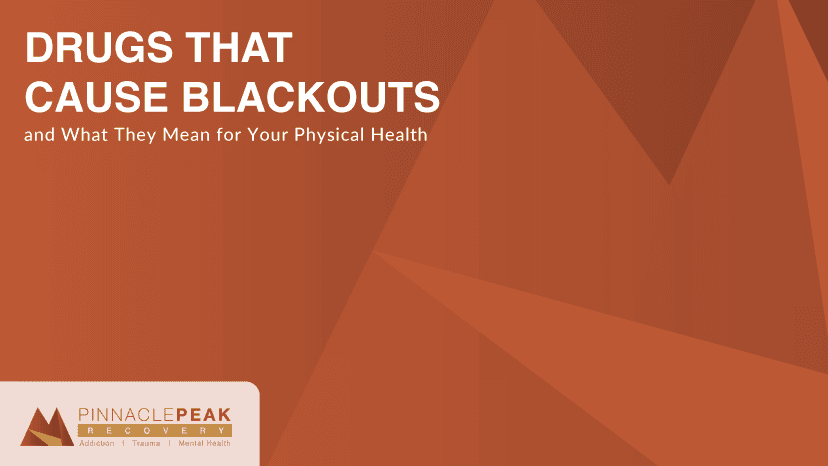Drugs That Make You Sleepy

Many Americans take daily prescription medication. Even if you don’t, you probably have several bottles of a variety of drugs in your house, from ibuprofen to Benadryl. Being aware of the effects of the medications and substances that we put into our bodies is important. Not only can it help us know if it’s working, but it can also help us know if something isn’t. Along these same lines comes from knowing about the side effects caused by certain substances. Not every side effect is benign.
Here at Pinnacle Peak Recovery, we believe in offering educational and easy-to-access information to everyone, not just our patients. We understand that knowing more about your body and what you put into it can help you make better decisions about your health in the long run. There are a large variety of substances and side effects out there, so talking about them all at once wouldn’t be very effective. Instead, today we’re going to look more closely at drowsiness as a side effect. So, what drugs can make you sleepy?
Prescription Drugs That Can Make You Feel Sleepy
Drowsiness is not an uncommon side effect of certain medications. There’s also a large variety of medications that are designed to help you sleep better. While not all medications that cause drowsiness fall under this category, common medications that help with relaxation and sleep are known as depressants. These can be commonly used as pain medications or even used during surgery to help with anesthesia. Opioids and benzodiazepines both fall under this category.
Additionally, there are medications that are designed to help combat other symptoms in addition to assisting with sleep. These can range from cold and flu medications to allergy meds. Things such as Zyquil and Benadryl are known to help with sleep or cause drowsiness.
The Symptoms and Side Effects of Substance Use
As mentioned before, a large category of substances, known as depressants, can commonly contribute to drowsiness or be used as a sleep aid. Unfortunately, things like opioids and benzodiazepines also have a high rate of misuse. Anytime a substance is taken outside of medical recommendation, whether it’s a legal substance or not, this is considered a form of misuse and can increase the risk of other side effects. In Arizona alone, over 260,000 people reported misusing prescription pain relievers in the past year.
There are other substances that can contribute to an overall feeling of drowsiness. Sometimes this can be caused even by the after-effects of taking a substance. Let’s look more closely at a few of them.
Heroin
Heroin is an opioid made from morphine. When taken and no treatment for heroin use disorder, people can often experience side effects such as flushed skin, dry mouth, itching, nausea, vomiting, brain fog, and drifting between consciousness and unconsciousness.
If consumed regularly or for long periods of time, you can develop long-term side effects as well. Some of these side effects include:
- Insomnia
- Collapsed veins or damaged nasal passages
- Lun complications
- Depression
- Infections in the heart lining
- Liver and kidney problems
Benzodiazepines
Benzodiazepines, or benzos, are a prescription medication that is commonly used to assist with panic attacks, seizures, and sleeping disorders. You may even recognize one of its name-brand products - Xanax.
It’s not uncommon for benzos to be misused, whether accidentally or on purpose. Benzos are generally used for their ability to reduce stress and anxiety and calm the body. However, even those who are taking it as prescribed have the chance of experiencing other side effects such as:
- Insomnia
- Collapsed veins or damaged nasal passages
- Lun complications
- Depression
- Infections in the heart lining
- Liver and kidney problems
Meth
Unlike heroin, methamphetamine, most commonly referred to as just meth, is a stimulant. Stimulants are designed to make the body generally feel either euphoric or high energy. Because of this, however, people can often feel tired or slowed down after they come down from a period of using meth.
With continued use, and no treatment for meth use, it can negatively impact your sleep patterns. In addition, you might experience other side effects such as anxiety, confusion, memory loss, violent behavior, hallucinations, extreme weight loss, and paranoia.
Cocaine
Like meth, cocaine is also a stimulant. It is a substance that causes high energy and feelings of happiness during consumption. It floods the brain with dopamine, the reward chemical in our bodies. Because of this combination, when you come down from a high, the world can almost feel dark or threatening as a result. This can lead to people continuing to consume cocaine.
Without cocaine treatment and long-term use, it’s possible to develop side effects such as tremors, irregular heartbeat, paranoia, and disrupted sleep.
How Substance Use Disorders Can Affect Your Mental State
Substances don’t just impact you at the moment – they can impact or alter your mental state in the long run. Take a medication like Xanax, which is meant to help alleviate anxiety. For those who misuse it, or even those who take it as prescribed, there’s a chance for withdrawal when you stop taking it. This can lead to increased anxiety.
Other substances like meth and cocaine, which can cause feelings of euphoria in the moment, can lead to depression for those who are managing a substance use disorder. Their bodies become accustomed to the feelings and dopamine provided by the substances and feel bereft without them.
Finally, it’s not uncommon for people to turn to a variety of substances in order to manage their current mental state. If they’re feeling depressed, they might take a stimulant in order to feel some happiness for a bit. If they’re managing anxiety, a depressant like benzos can help calm them down. The problem with this stems from the misuse and lack of additional steps taken to manage mental health. Antidepressants or anti-anxiety medications are best utilized when combined with therapy and treatment.
Getting Treatment For a Substance Use Disorder at Pinnacle Peak Recovery
No matter what your substance use concern is, Pinnacle Peak Recovery is here to help. We have years of experience in guiding people along their road to recovery. With our expert medical staff, we will work with you or your loved one to find a recovery path that fits your specific needs. We know that there’s no one plan that works perfectly for everyone, so we offer a variety of evidence-based options in order to help you reach your healing goals.
Here at Pinnacle Peak, we offer everything from detox to inpatient and outpatient programs. Our drug detox program will help you manage withdrawal symptoms and focus on your recovery journey. From there, many people move to inpatient, where you stay on-site for the beginning of your recovery journey. This can be especially helpful for those who don’t have a stable home, or who live in an environment that might not be conducive to their recovery. Some people start in outpatient, which offers the same programs as inpatient but patients only meet a couple of times a week. Others utilize outpatient as a transition point between inpatient and being back home.
No matter what option you’re looking for, we can help you. If you have any questions or want to get started on your recovery journey, don't hesitate to give us a call at don’t hesitate to give us a call at 866-377-4761.
Loved One Suffering From Substance Use Disorder!
Call Us Today!
FAQs What Drugs Can Make You Sleepy
What drugs make you sleepy?
Depressants like benzodiazepines and opioids can cause drowsiness as a side effect, or even as an intended purpose.
How does heroin affect sleep?
Heroin can impact your sleep by causing you to sleep more or by causing fatigue when you don’t want it.
How does cocaine affect sleep?
Cocaine is a stimulant and will often interrupt sleep patterns or make it harder for someone to sleep.



